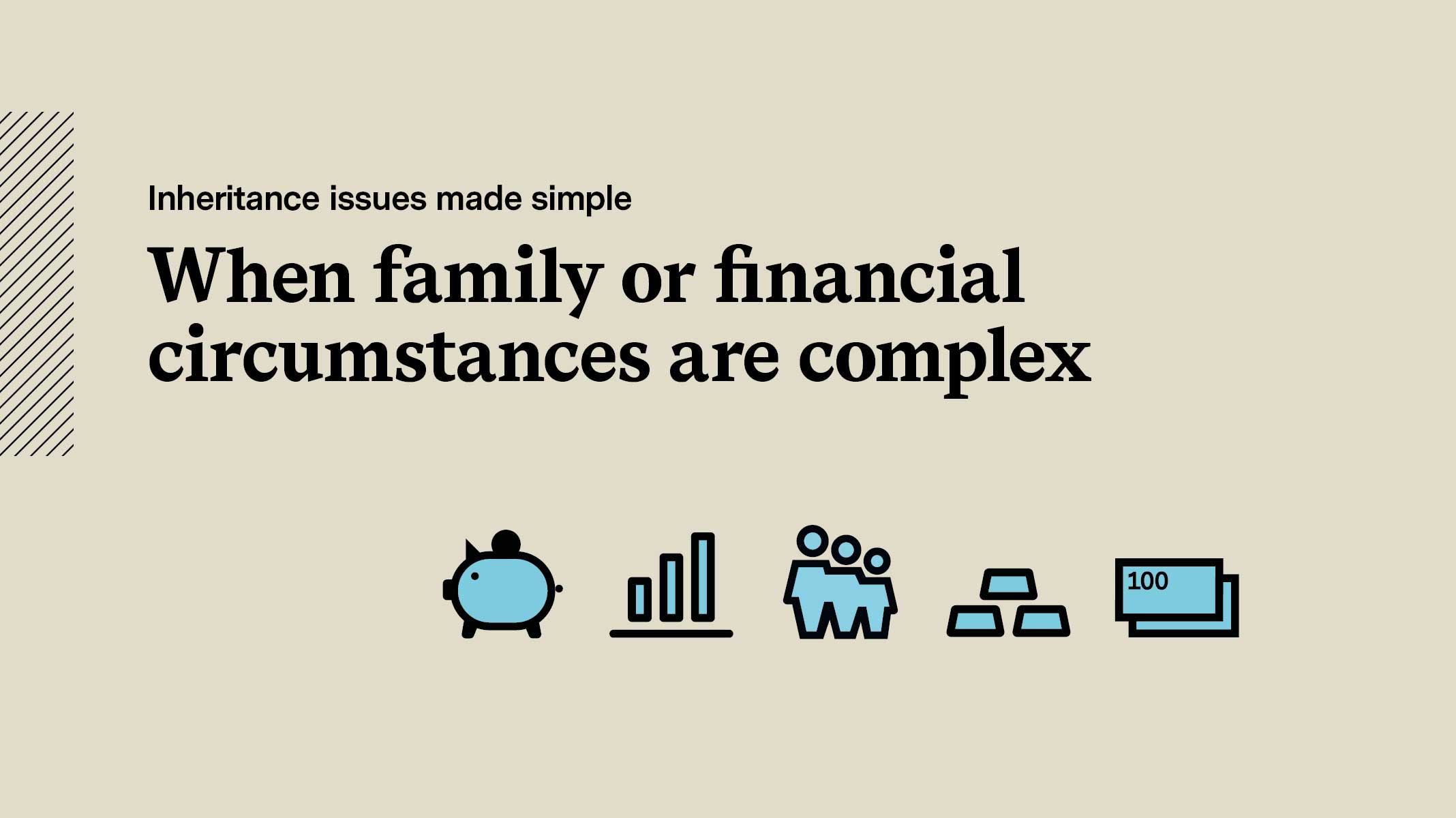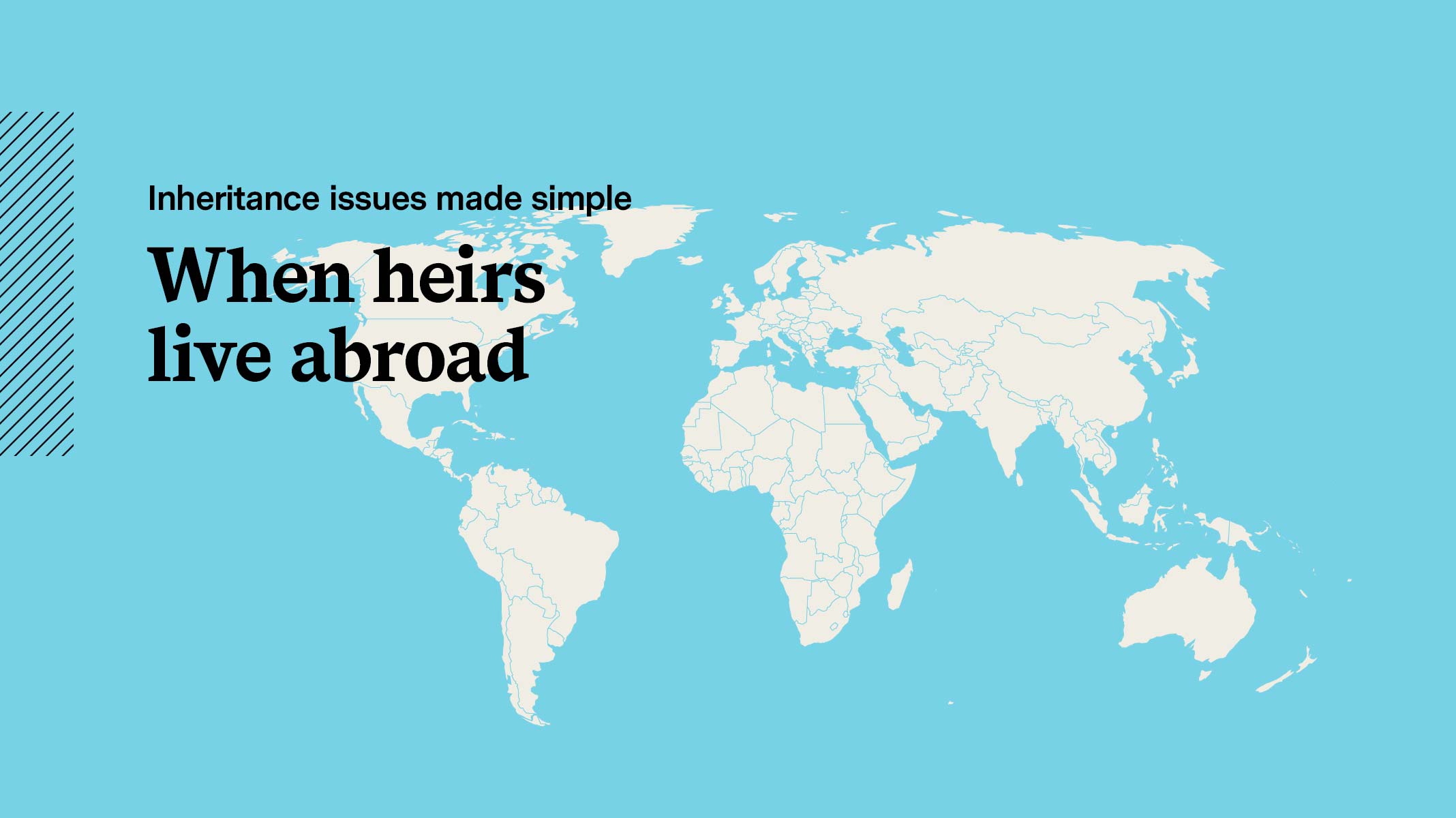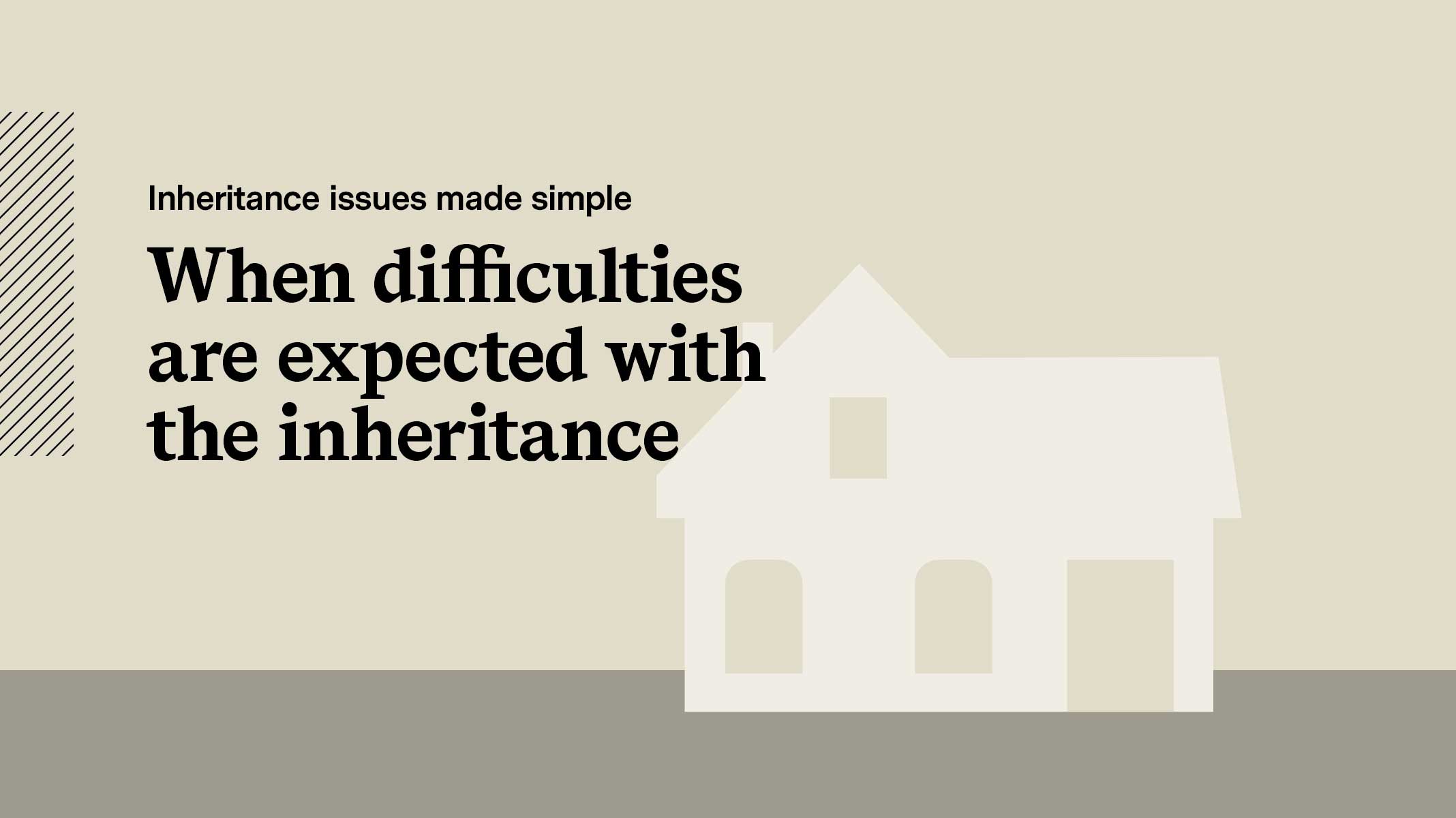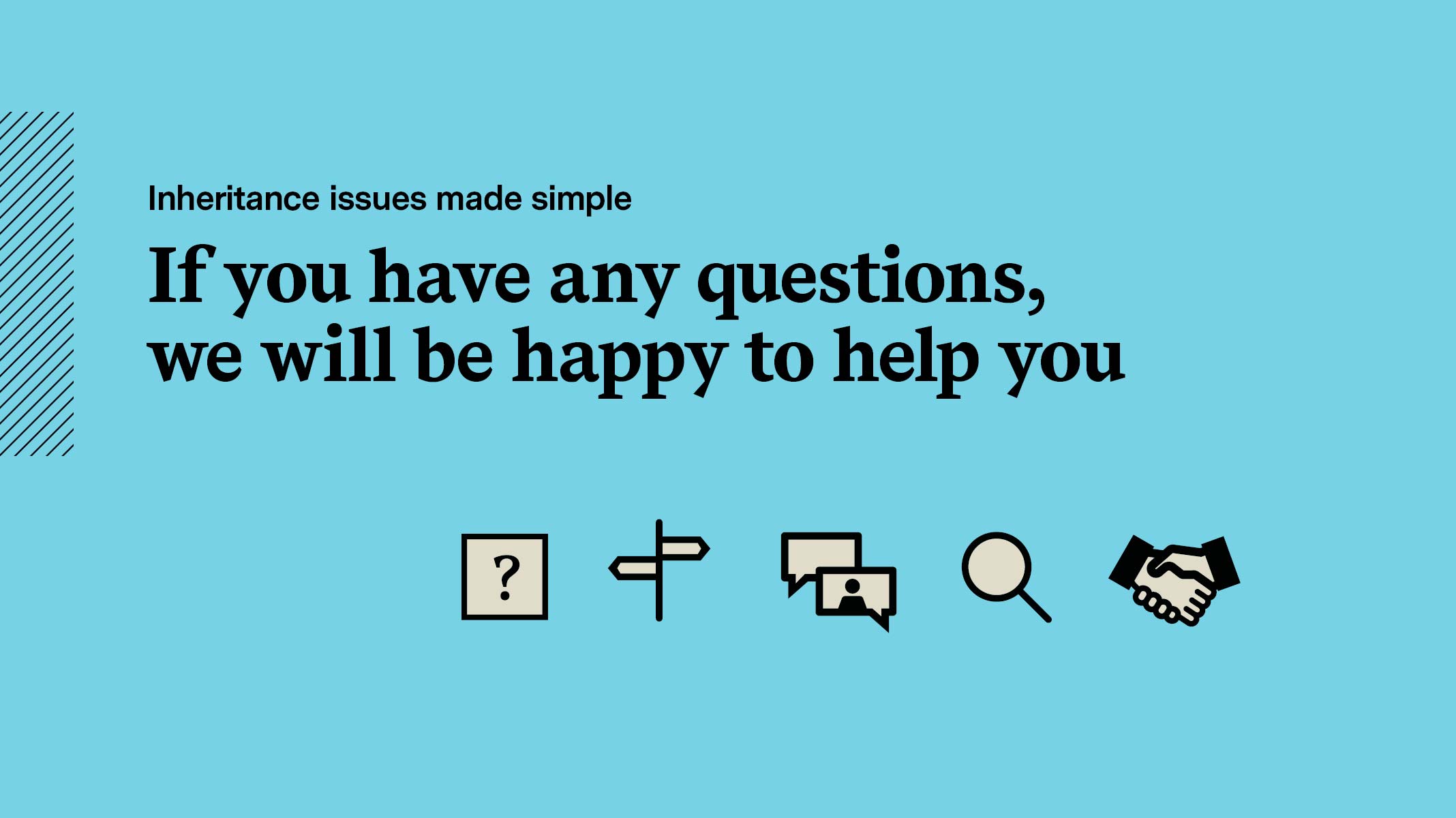
Using an executor to distribute your estate’s assets
Why this is an option to consider, and how to proceed
Published on 12.06.2023 CEST
Make it easier to divide your estate among your heirs
How you will divide your estate is not a simple topic. By appointing an executor, you can relieve your heirs of an administrative and emotional burden during a difficult time.
One's own estate – or more precisely: dividing the estate – is something that most people only address late in life. But you are not the only one who finds it a difficult subject to think about. When the time comes, it is also your heirs who will find themselves in a challenging situation. That’s because dividing an estate can entail a lot of administrative work – at a time that is also emotionally stressful. In such situations, an executor can provide valuable support.
When is it useful to have an executor?
As a matter of principle, in the case of an inheritance, the entire community of heirs must make every decision unanimously, rather than on the basis of “the majority decides.” Depending on how many people are involved and their relationship with each other, this can have a detrimental impact on the distribution of the estate’s assets, slowing down the process or even bringing it to a complete halt.
This is where an executor can help. His or her task is to administer the estate and implement the last will. In case disputes between the heirs arise, the executor helps them find compromises and solutions.
What does an executor do?
The duties of an executor include administering the estate and implementing the last will.
Three typical reasons – in words and pictures

When family or financial circumstances are complex
Will your estate include a large number of beneficiaries, or will it not be very straightforward to distribute its assets?

When heirs live abroad
In this case, communication among the heirs is often difficult, and the delivery of official documents abroad is usually cumbersome. An executor can remedy this, becoming the contact person and intermediary for all of the heirs. And to simplify the delivery of documents, the executor’s address can serve as the contact address for all correspondence to and from heirs living abroad.

When difficulties are expected with the inheritance
In particular, real estate can often lead to disputes – on the one hand because real estate can only be "shared" to a limited extent, and on the other hand because financial and emotional values may clash.

If you have any questions, we will be happy to help you
We would be happy to advise you personally. Contact options can be found below on this page.
Who can execute your will?
In principle, any person who has the legal capacity to act may perform this function. What is important is that the executor is appointed in the will. A person cannot be appointed by the community of heirs. For example, your spouse or another heir could be appointed – but so could an uninvolved third party or a legal entity such as a bank or fiduciary. The most sensible choice is to hire a neutral person who has the necessary expertise. This way, you can avoid potential conflicts of interest.
Questions about your estate
It’s a satisfying feeling to have properly taken care of important issues in advance. With a will or contract of inheritance, you can prevent any disputes among your heirs. We would be happy to provide you comprehensive, personal advice. If you would like to ask us questions, don’t hesitate to contact us – without obligation on your part.
